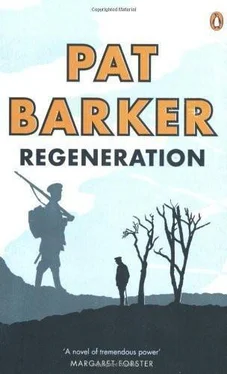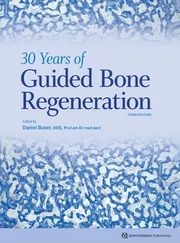The doorbell rang, and Burns got up to answer it. ‘This is Mrs Burril’s day for sorting me out,’ he said.
Mrs Burril was a remarkably silent person, but she managed, without words, to make it clear their presence was superfluous.
Burns said, ‘I thought we might go for a walk.’
The mist had thinned but not cleared. It moved in slow, cold currents over the marshes, where drainage ditches and sump holes reflected a steely light at the sky. Reeds whispered, with a noise like the palms of hands being rubbed together. It was difficult to breathe, difficult even to move, and they spoke in low voices when they spoke at all.
They walked along a narrow raised path that divided the marshes from the river. Small yachts rode at anchor, the breeze just strong enough to make their rigging rattle, not a loud sound, but persistent and rather disturbing, like an irregular heart beat. Nothing else here could disturb. The estuary lay flat and peaceful under a shrunken, silver sun, and nothing moved, except the reeds, until a flight of ducks whistled past.
Rivers had begun to realize how remarkable the area was. A strip of land, at times no more than a hundred yards wide, divided the estuary from the North Sea. Walking out along this strip, away from the town, into the bleached shingle distances, you became aware of two separate sounds: the roar and suck of waves on shingle, and the lulling sound of the river among its reeds. If you moved to the left, the crunch and chop of boots on shingle cut out the gentler river sounds. If to the right, the tapping of rigging and the lapping of water dominated, though you could still hear that the sea was there.
They turned and looked back at the huddled town. ‘You know, I love this place,’ Burns said. ‘I wouldn’t like you to think I’d left London just because of the raids. Actually it wasn’t the raids, it was the regular meal-times. You know, everybody sitting down to eat. Waiting for food to be put in front of them. And father going on about the war. He’s a great believer in the war, my father.’
‘Will they be coming to Suffolk at all?’
‘No, I shouldn’t think so. They’re both very busy in London.’ They turned and walked on. ‘It’s best we don’t see too much of each other at the moment. I am not a sight for sore eyes.’
A squat, circular building had begun to loom up out of the mist. It looked rather like a Martello tower, Rivers thought, but he hadn’t known they’d been built as far north as this.
‘This is the most northerly,’ Burns said, slithering down the slope on to the beach. Rivers followed him across the shingle and down into the dank high moat that surrounded the tower. In its shadow, all water sounds, whether hissing waves or lapping water, abruptly ceased. Ferns grew from the high walls of the moat; and the tower, where the look-out turret had crumbled away, was thronged with bindweed, but the overall impression was of a dead place.
The sea must flood the moat at high tide, for all kinds of debris had been washed up and left. Driftwood, the torn-off wing of a gull, bits of blue and green glass. A child would have loved it, picking over these pieces.
‘We used to play here,’ Burns said. ‘Daring each other, you know. Who could go all the way up?’
There was a door, but it had planks nailed across it. Rivers peered through a crack and saw stone steps going down.
‘Strictly forbidden. They were always afraid we’d get trapped in the cellars.’
‘I suppose they flood, don’t they? At high tide?’
‘Yes. There’s all kinds of stories told about it. People chained up and left to drown. I think we rather liked that. We used to sit down there and pretend we could see ghosts.’
‘It feels like a place where people have died. I mean, violent deaths.’
‘You feel that, do you? Yes. I expect that’s why we liked it. Bloodthirsty little horrors, boys.’
Rivers wasn’t sorry when they climbed the bank of shingle and stood on the beach in the strengthening sunlight again.
‘Do you feel up to a longish walk?’ Burns asked.
‘Yes.’
‘All right. We can follow that path.’
They walked four or five miles inland, and came out into a wood where great golden tongues of fungus lapped the trees, and a mulch of dead leaves squelched underfoot. Rather to Rivers’s surprise they stopped at a pub on the way back, though no food was available. Burns could drink apparently, and did, becoming in the process quite flushed and talkative, though nothing was said about his illness.
They arrived back in the late afternoon with every bone and muscle aching. Mrs Burril had obviously built up the fire before she left, and it was rescuable, just about. Rivers knelt in front of it, sticking strips of cereal packet through the bars, and blowing when he got a flame. ‘Have you any newspapers?’
‘No,’ Burns said.
No, Rivers thought, silly question. Once the fire was burning well, Rivers went out and bought cakes and biscuits for tea, which he served in front of the fire, tucking in himself and not looking to see whether Burns ate or not. He ate, sitting on the hearth rug, his wind-reddened arms clasped about his knees, and the firelight playing on his face.
After the plates were cleared away, Rivers asked if he might work for a couple of hours. He was writing a paper on the Repression of War Experience which he was due to give to the British Medical Association in December, and he knew, once he got back to Craiglockhart, there would be very little time. He worked at the table in the window, with his back to the room. He began by reading through what he’d written so far on the evil effects that followed from patients trying to suppress their memories of war experience, and was about to start writing when it occurred to him he was in the same room as a man who was doing just that.
Why do I go along with it? he thought. One answer, the easy answer, was that he was no longer Burns’s doctor. It was up to Burns now how he chose to manage his illness. But then he’d gone along with the suppression in Craiglockhart too. Whenever he’d tried to apply to Burns the same methods of treatment he used with everybody else, and used, for the most part, successfully, his nerve had failed him. He’d told himself this was because of the peculiar nature of Burns’s experience, the utter lack of any redeeming feature the mind could grasp and hold on to while it steadied itself to face the full horror. But was Burns’s experience really worse than that of others? Worse than Jenkins’s, crawling between the dismembered pieces of his friend’s body to collect personal belongings to send back to the family? Worse than Prior’s? What shall I do with this gob-stopper?
Corpses were everywhere in the trenches. Used to strengthen parapets, to prop up sagging doorways, to fill in gaps in the duckboards. Many of his patients treading on a dead body had been startled by the release of gas. Surely what had happened to Burns was merely an unusually disgusting version of a common experience. And I’ve let him, Rivers thought — no, that was unfair, that was completely unfair — I’ve let myself turn it into… some kind of myth. And that was unforgivable. He wasn’t dealing with Jonah in the belly of the whale, still less with Christ in the belly of the earth, he was dealing with David Burns, who’d got his head stuck in the belly of a dead German soldier, and somehow had to be helped to live with the memory.
He turned and looked at Burns, who was still sitting on the hearth rug, though now he’d found himself a book and was reading, his tongue protruding slightly between his teeth. As he felt Rivers’s gaze, he looked up and smiled. Twenty-two. He should be worrying about the Tripos and screwing up his courage to ask a girl to the May ball. And yet even now Rivers was nervous of raising the subject of his illness. Burns’s instinctive reaction had been to get back to this house, to forget. And there had been some improvement under this regime, by day at least, though evidently not by night. If he wants to talk, he’ll talk, Rivers thought, and turned back to his paper.
Читать дальше












